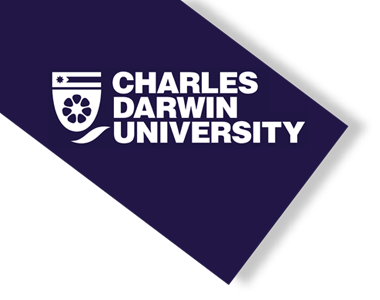Bachelor of Humanitarian and Community Studies
Charles Darwin University
About
The Bachelor of Humanitarian and Community Studies develops your skills to understand, critically analyse and apply concepts of community development and international humanitarian assistance.
This course focuses specifically on working with indigenous and non-indigenous communities in urban and resource-poor environments.
The course is delivered by academics and experienced practitioners.
Interdisciplinary course units provide you with knowledge in:
psychology sociology ethics human service delivery cultural studies indigenous knowledge community engagement project management international humanitarian practice You will also complete two practice placements in your second and third year where you will acquire hands-on skills and knowledge in the fields of humanitarian practice and community development.
Structure
Common(2 units) - 20
Common units totalling 20 credit points as detailed below:
CUC107
(compulsory)
Plus either:
CUC106
(preferred for this course)
or
CUC100
(new title from 2016)
Select Common Units to find out more about individual units and advanced standing options.
Core(16 units) - 170
Compulsory Core units totalling 170 credit points from units detailed below:
PSY140
(external only) (replaced by IAS222 2020)
SWK101
(recoded from SWK141A 2016)
SWK102
(recoded from SWK142B 2016)
(20cp) (previously SWK260) (Unit no longer available, refer below for Course Changes - 2020)
PMO201
SWK201
(recoded from SWK243 2016)
SWK202
(recoded from SWK242A 2016)
HCS350
(to be studied concurrently with HCS365) (previously SWK350) (field placement) (refer below for Course Changes - 2020)
HCS365
(to be studied concurrently with HCS350) (previously SWK365)
SWK301
(recoded from SWK343 2016)
SWK311
(recoded from SWK341 2016)
SWK312
(recoded from SWK347A 2016) (new title 2018)
SWK313
(recoded from SWK351 2016)
SWK323
(replaces SWK403 from 2019) (recoded from SWK459 2016)
SWK318
(replaces SWK405 from 2019)
(recoded from SWK440A 2016)
- 30
Specialist elective units totalling 30 credit points selected from the list of available units detailed below:
IND150 Colonising Australia (recoded from ATI150 with new title from 2016) (replaced by IAS131 2020) PSY141 Introduction to Psychology B ATI200 Indigenous Contemporary Perspectives (replaced by IAS245 2020) ATI210 Indigenous Governance and Leadership (replaced by IAS242 2020) CIK230 Indigenous Engagements: Land and Water (replaced by IAS254 2020) ATI330 Indigenous Networking and Collaboration (replaced by IAS351 2020) ATI331 Practices and Skills in Indigenous Community Work (replaced by IAS352 2020) SWK316 Building Safe Communities (replaces SWK401 Building Safe Communities from 2019) (recoded from SWK454 2016) SWK317 Dynamics of Loss and Grief (replaces SWK404 from 2019) (recoded from SWK457 2016)
Electives - 20
Units totalling 20 credit points selected from undergraduate units offered by the University. Students may select units from any of the approved (specialisations/sequences) as electives, if desired.
SWK1xx, SWK2xx, SWK3xx
SWK4xx
- 240
Total Credit Points
Entry requirements
Admission requirements are met by one of the following: Successful completion of the Northern Territory Certificate of Education and Training (or equivalent) and the awarding of an Australian Tertiary Admissions Rank (ATAR) of at least 60*. Successful completion of a national qualification at Certificate IV level or higher. Successful completion of at least 0.5 year of full-time study (or equivalent) of a higher education degree/diploma. Overseas secondary or tertiary qualifications considered equivalent to the above Australian qualifications. Attainment of a STAT Multiple Choice score of 135 (or a score of 145 if prior to May 2010). Successful completion of the Tertiary Enabling Program, the Preparation for Tertiary Success courses, or other recognised tertiary preparation course. Submission of an acceptable personal competencies statement and/or employment experience. * After any applicable adjustment factors have been applied.
Institution
